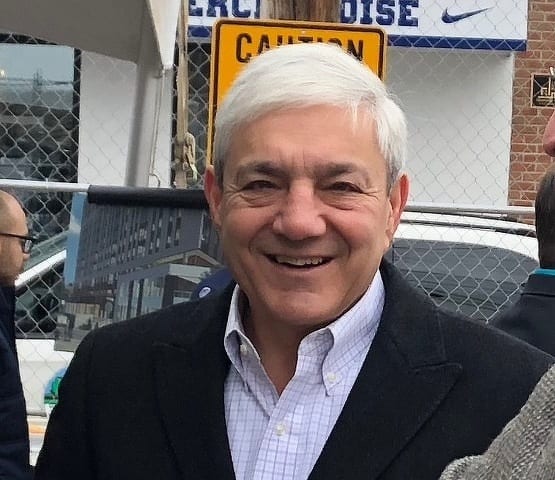
no description

no description
A federal judge has thrown out former Penn State President Graham Spanier’s conviction on a child endangerment charge, one day before he was scheduled to begin serving a two-month jail sentence at the Centre County Correctional Facility.
In an opinion and order filed on Tuesday afternoon, U.S. Magistrate Judge Karoline Mehalchick agreed with Spanier’s contention that it was unconstitutional to charge him under a 2007 statute for his handling of a 2001 report about former Penn State football assistant coach Jerry Sandusky with a boy in a campus locker room shower. Mehalchick also ruled that the jury at his March 2017 trial was wrongly instructed they could convict on the later statute.
Mehalchick’s order gives the Pennsylvania Office of Attorney General 90 days to decide if it will retry Spanier.
‘We’ve received the court’s opinion and are carefully reviewing it,’ Joe Grace, spokesman for the Attorney General’s Office, said in an email.
Spanier’s federal petition was a last chance to reverse his conviction on the misdemeanor charge of endangering the welfare of a child after Pennsylvania Superior Court denied his appeal and the state Supreme Court declined to hear his case in February. He was initially charged in 2012 — four months after Sandusky was convicted on 45 counts related to child sexual abuse — and after a long legal road Spanier saw most charges, including perjury and obstruction, dismissed before he went to trial in Dauphin County.
At trial he was found not guilty on a felony charge of endangering the welfare of a child, which alleged a ‘course of conduct’ for not reporting Sandusky, and a felony conspiracy charge.
Mehalchick concurred with his attorneys’ assertions that retroactive application of the 2007 child endangerment statute ‘is unreasonable and far more extensive than anyone in 2001 would have been able to reasonably foresee.’
Spanier was charged for his decision, along with former Athletic Director Tim Curley and Senior Vice President Gary Schultz, not to take Mike McQueary’s report about Sandusky to child welfare or law enforcement officials, but instead talk to Sandusky, bar him from bringing children to campus facilities and report it to Dr. Jack Raykovitz, the head of Sandusky’s Second Mile charity for at-risk youth where prosecutors say Sandusky found most of his victims. All three administrators have maintained that they did not believe McQueary had described child abuse, only that it was inappropriate ‘horse play.’
At the time, the child endangerment law did not apply to positions such as Spanier’s that did not directly supervise a child. Changes to the law six years later added liability for those who did not directly supervise a child but employed or supervised someone who did.
‘The Court finds that the Pennsylvania state courts unreasonably expanded the scope of the pre-amendment child endangerment statute in such a way that it would have been unforeseeable to Spanier in 2001 that his conduct could result in criminal culpability… and in a manner which violates bedrock constitutional principles of due process,’ Mehalchick wrote.
‘[T]he conviction in this matter was based on a criminal statute that did not go into effect until six years after the conduct in question, and is therefore in violation of Spanier’s federal constitutional rights.’
Mehalchick did not support Spanier’s third argument that an exception to the statute of limitations for the child endangerment law had been improperly applied. The statute of limitations for child endangerment is two years and the exception would require the Commonwealth to prove the child involved was under 14 at the time of the incident. Prosecutors, however, claim they have never identified the boy in the shower with Sandusky.
The judge wrote that she could not find the state court’s application of the statute of limitations issue presented a violation of Spanier’s right to due process and that ‘the jury’s finding that Spanier could not be convicted under the felony EWOC charge… simply determines that such conduct could not render Spanier’s trial so fundamentally unfair as to offend the Due Process Clause.’
That exception and the child endangerment law as written in 1995 would seem to be the remaining basis for prosecutors to retry Spanier if they choose. Prosecutors could also appeal Mehalchick’s decision to the U.S. Court of Appeals for the Third Circuit.
Curley and Schultz both pleaded guilty to misdemeanor child endangerment charges in the same case in 2017. They each served short jail sentences later that year in Centre County.
Sandusky is serving a 30 to 60 year sentence in state prison. He maintains his innocence and continues appeal efforts.
Receive all the latest news and events right to your inbox.

80% of consumers turn to directories with reviews to find a local business.